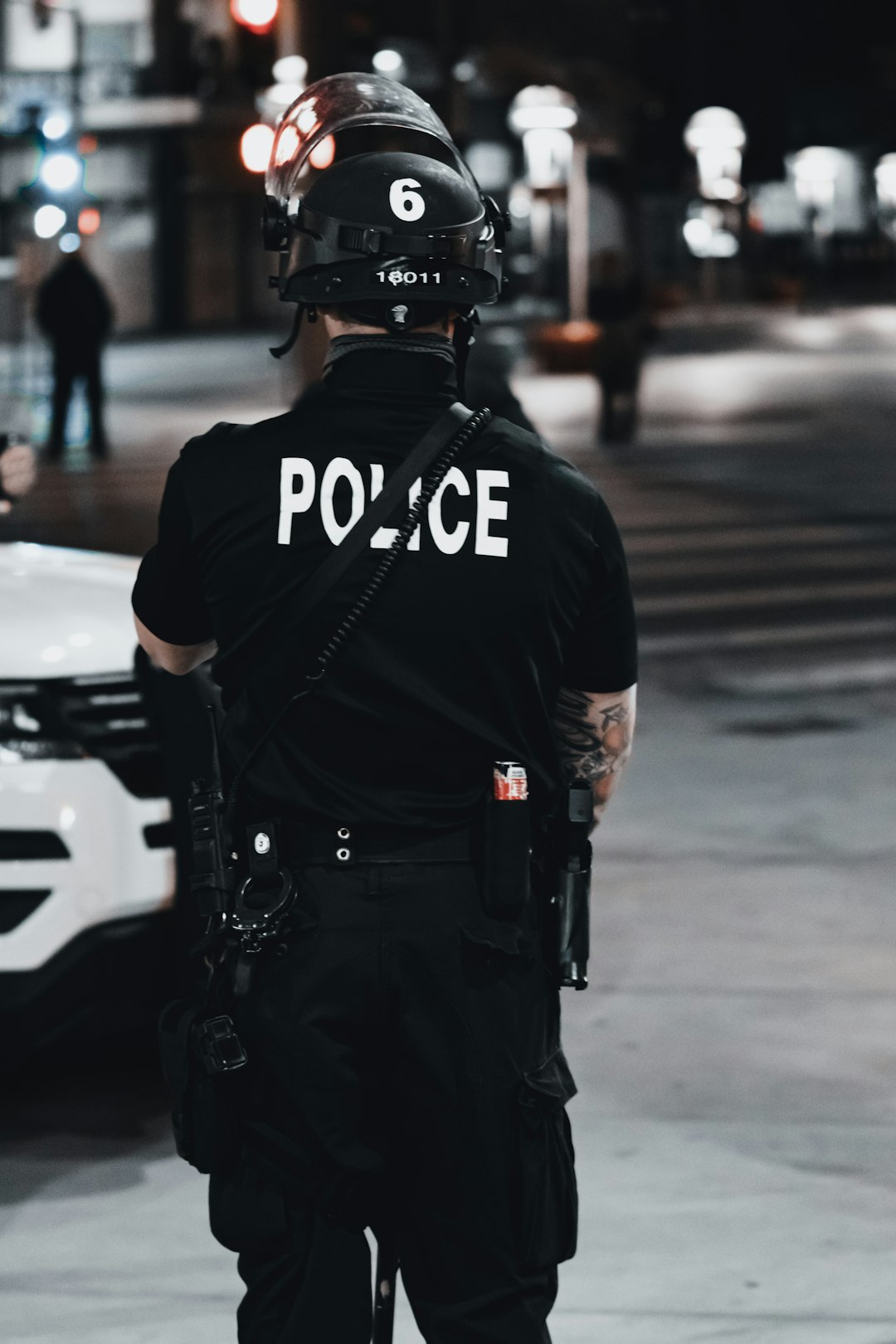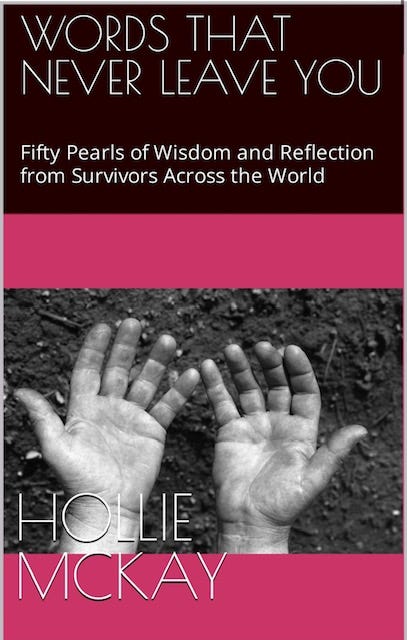I met Arizona-based detective Chris Boughey almost ten years ago while working on a story about a rash of honor killings nationwide. Such murders, which typically involve men victimizing wives and daughters because of behavior that has somehow insulted their faith, are among the most secretive crimes in society and are brushed under the rug as domestic violence-spurred murders. While both issues are tragic and problematic, experts say there are critical distinctions and that honor violence requires a different approach.
Mr. Boughey proved a rare voice in what was really going on behind the iron curtain of political correctness surrounding the issue, which claims the lives of more than thirty women in the U.S. annually.
He recalls Oct. 20, 2009, as the ominous day that “changed (his) life forever.” That was the day Iraqi immigrant Faleh Almaleki murdered his daughter, Noor Almaleki, by running her over with his vehicle for becoming “too Westernized.” Boughey was assigned as the lead investigator. He has since dedicated his career to educating others and taking on similar cases in numerous other states -- from Alaska and New York to California, Washington state and Pennsylvania.
“In the Almaleki case, I learned very quickly that we would receive no assistance from the family,” Boughey recalls. “We received out-and-out defiance and resistance. Although we know they are involved, it can be very hard to prove in a court of law.”
I want to take this moment to illuminate the critical and life-saving work Boughey and his colleagues in blue across the country do daily to tend to the most vulnerable in our society, sometimes at great risk to their own lives and wellbeing. These days, 53-year-old Boughey resides in Phoenix, Arizona and serves as the Federal Task Force Officer on the Violent Crimes Task Force as well as a leading Detective in the Major Crimes Unit, which requires investigating homicides, robberies, kidnappings, officer-involved shootings, death investigations and missing persons.
“In almost thirty years on this job, I have been shot at, stabbed, punched, kicked, bled on, thrown up on, been involved in vehicle and foot pursuits, hostage/barricade situations and knock down drag out fights, to name a few,” he notes nonchalantly.
However, despite these quiet acts of heroism endured by many police officers, the public court of opinion in recent years has shredded the once respectable profession.
“We are under more scrutiny, sometimes warranted but most of the time not, than any other period in American History. We are under fire, both figuratively and literally, with little backing by some politicians and some citizens,” Boughey continues. “Social media and cellular phones capture only portions of encounters, without the whole story being told. We are expected to be right 100 percent of the time, and when we are not, or perceived not to be, we are crucified. I think all (or most) of us understand and accept that we are and should be held to a higher standard, but people should not jump to conclusions without having all the information. We are human, sometimes, we make mistakes, and we should be held accountable when we do. Don’t hate me just because I wear a badge and uniform.”

As a result of the hostility, most of the eighteen thousand police departments nationwide need help to stay afloat and attract recruits. Morale has plummeted to a record low among many officers due to both internal and external factors. Yet violent crime surges in virtually all major U.S. cities, even as police condemnation increases and numbers dwindle.
“I think a lot of us think about our futures and are concerned about the increasing levels of violence and lawlessness but fear discipline or being charged criminally for just doing our job and enforcing the Law,” Boughey points out.
Criticism is not without at least a little validity, given the numerous instances of police abuse and misgivings, and all professions need to be tagged with the expectation of high standards, especially those that stand between one’s life and death. However, we often forget the many more selfless and noble acts that save lives and keep communities safe. Boughey guides me through a scenario from several years ago, in which he was called to probe a very brutal homicide of an elderly man.
“I tracked the victim’s car and the suspect to California. Then, on a whim, my partner and some Detectives from California went to the subject’s sister’s place of employment. While we were talking to her in a conference room at the business, her brother (the suspect) shows up and looks inside the room,” he remembers. “He sees us, we see him, and he takes off. We end up getting into a foot pursuit inside a factory and finally get him into custody. He ended up making a full confession and was sentenced to life in prison. Later after DNA came back, we linked him to several additional sexual assaults in California.”
However, bringing a perpetrator to justice is often not the most difficult part of the profession.
“For a non-line cop, particularly detectives/investigators, I think the hardest thing, maybe not the hairiest, is notifying a mother, father, husband, wife, or family member of the unexpected and violent death of a loved one,” he continues softly. “A little piece of you always goes with it, and you never forget it.”
Still, misconceptions about the force continue to run wild.
“The biggest misunderstanding by the general public is that most of us (95%+) are doing this job because we want to and we love it. I knew I wanted to be cop when I was three years old, watching ‘Adam 12.’ If you talk to most of us, we consider this profession a calling,” Boughey emphasizes. “We genuinely feel we are a vital and necessary part of the community, and it is in our DNA to help people and make the communities that we serve and live in a safe place for all.”
As he articulates, cops deal with people on the worst day of their life almost every day – and that takes a toll, made all the more searing by the continued choruses to “Defund the Police.” Externally, officers are plagued by escalating threats and acts of violence, surging oversight, escalating media coverage, and soft laws concerning crime. Additionally, on an internal level, officers are subject to staff shortages, work overloads, and budget challenges, which leads to a lack of needed equipment and repairs, amplified by an absence of leadership increasingly influenced by local government policies that counter policing interests.
“Law Enforcement is one of those professions where you go to work knowing this might be your last day on earth. You cannot say that for a lot of other professions. We accept that and know that deep in our hearts and minds, but do not ever dwell on it,” Boughey says. “The Defund movement, media talking heads, misinformed people, and the general lack of accountability currently in our country make veteran cops ask themselves, ‘Is this really worth it?’ In many places, we do not have support from our County/District Attorneys. We bring good cases, but they are not filed.”
Furthermore, the push for justice is becoming ever more elusive as more and more states are hurriedly releasing criminals and implementing zero bail reforms, contributing to a huge dip in police morale.
“In the name of ‘equity,’ we release violent, career criminals. Studies have shown that approximately one percent of the population commits approximately 63 percent of all violent crimes. These people are not afraid of us and certainly not afraid of going to jail. The one mechanism that we had to protect our citizens was placing high bail on these repeat, violent offenders. Now, in most places, that is gone,” Boughey laments. “These subjects tell us all the time, even though we are booking them on serious charges, they know they will be out soon. It is a joke. Certain segments of the Criminal Justice System have forgotten that our overall mission is to be a voice, an advocate, and to serve our victims. I fear justice is no longer blind.”
Yet, despite having to work under the gloom of a negative stigma, Boughey holds his proudest accomplishments close – it is not the awards and recognition but the relationships established with victims, families of victims, fellow investigators and prosecutors that he treasures most of all.
“Working a very intricate investigation where someone has been truly victimized and seeing that case from callout to conviction result in a very bad person being sent to prison for a very long time keeps me motivated to wake up and do this everyday. Justice – not closure – to victims and victim families really matters.”

Moreover, Boughey refuses to give up on the once noble profession he dreamed of becoming since early childhood, believing that while there is “always room for improvement,” policing in America is on a positive path forward.
“I think, collectively as a profession, we are doing a better job with transparency and accountability,” he adds. “Departments are doing a better job identifying possible issues with officers – PTSD or substance abuse – and catching these issues before they get out of control. Departments are now providing counseling and support groups for officers that need it. Most of the time, we make the right decisions at the right time and get safe, positive outcomes.”
PLEASE CONSIDER A PAID SUBSCRIPTION TO THIS SUBSTACK TO HELP KEEP INDEPENDENT, AGENDA-FREE WRITING AND JOURNALISM ALIVE. THANK YOU SO MUCH FOR YOUR SUPPORT.
For speaking queries please contact meta@metaspeakers.org
Follow me on Instagram and Twitter for more updates
HOLLIE’S BOOKS (please leave a review)
** Short read of meaningful lessons gleaned from the ordinary forced to become extraordinary
Order your copy of “Afghanistan: The End of the US Footprint and the Rise of the Taliban Rule” due out this fall.
For those interested in learning more about the aftermath of war, please pick up a copy of my book “Only Cry for the Living: Memos from Inside the ISIS Battlefield.”
If you want to support small businesses:














Share this post